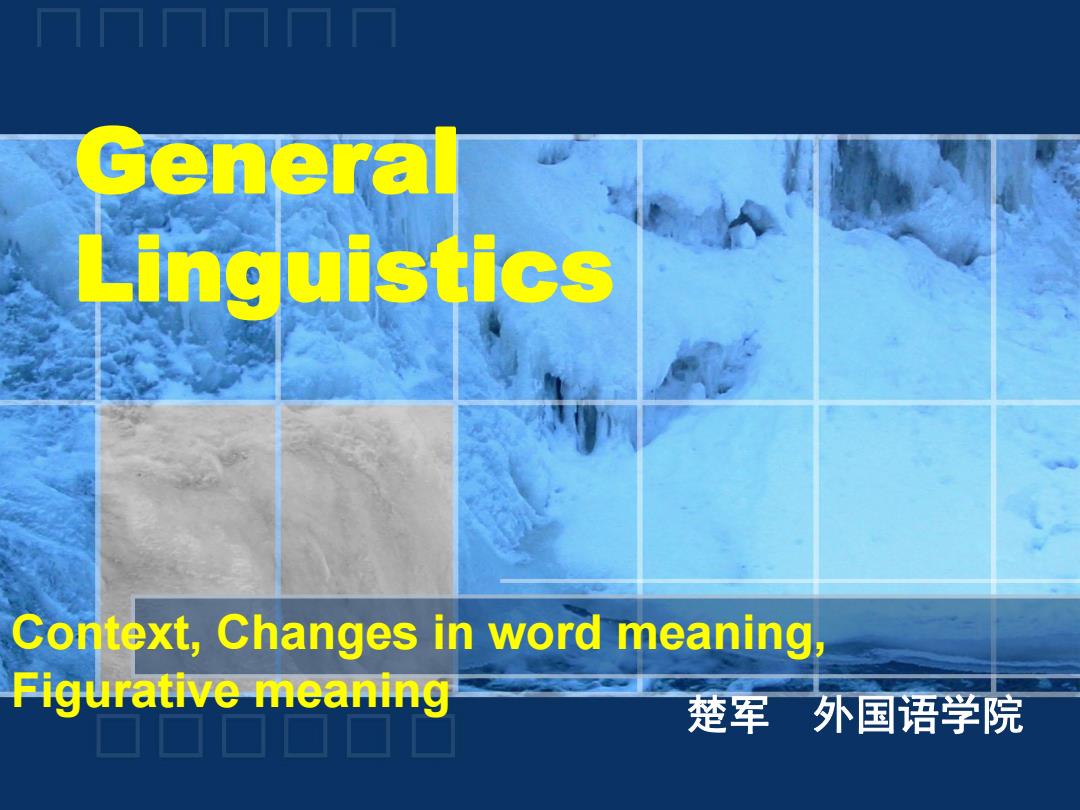
General Linguistics Context,Changes in word meaning, Figurative meaning 楚军外国语学院
Context, Changes in word meaning, Figurative meaning 楚军 外国语学院 General Linguistics
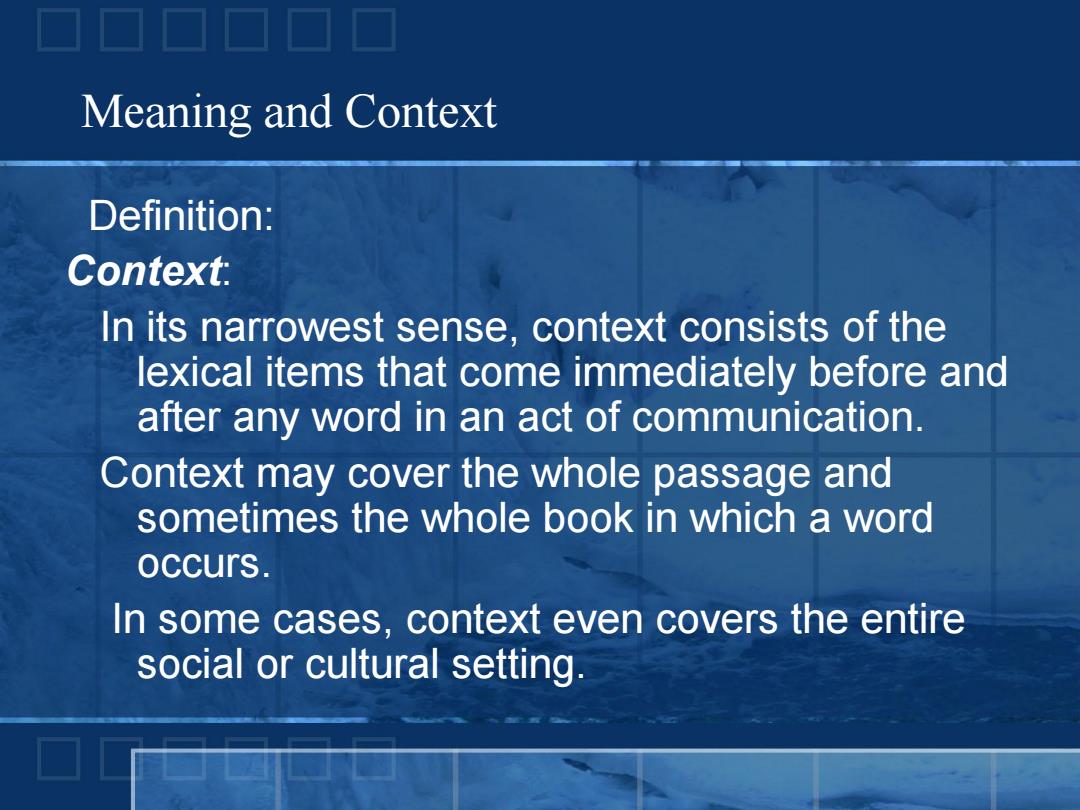
Meaning and Context Definition: Context: In its narrowest sense,context consists of the lexical items that come immediately before and after any word in an act of communication. Context may cover the whole passage and sometimes the whole book in which a word occurs. In some cases,context even covers the entire social or cultural setting
Meaning and Context Definition: Context: In its narrowest sense, context consists of the lexical items that come immediately before and after any word in an act of communication. Context may cover the whole passage and sometimes the whole book in which a word occurs. In some cases, context even covers the entire social or cultural setting
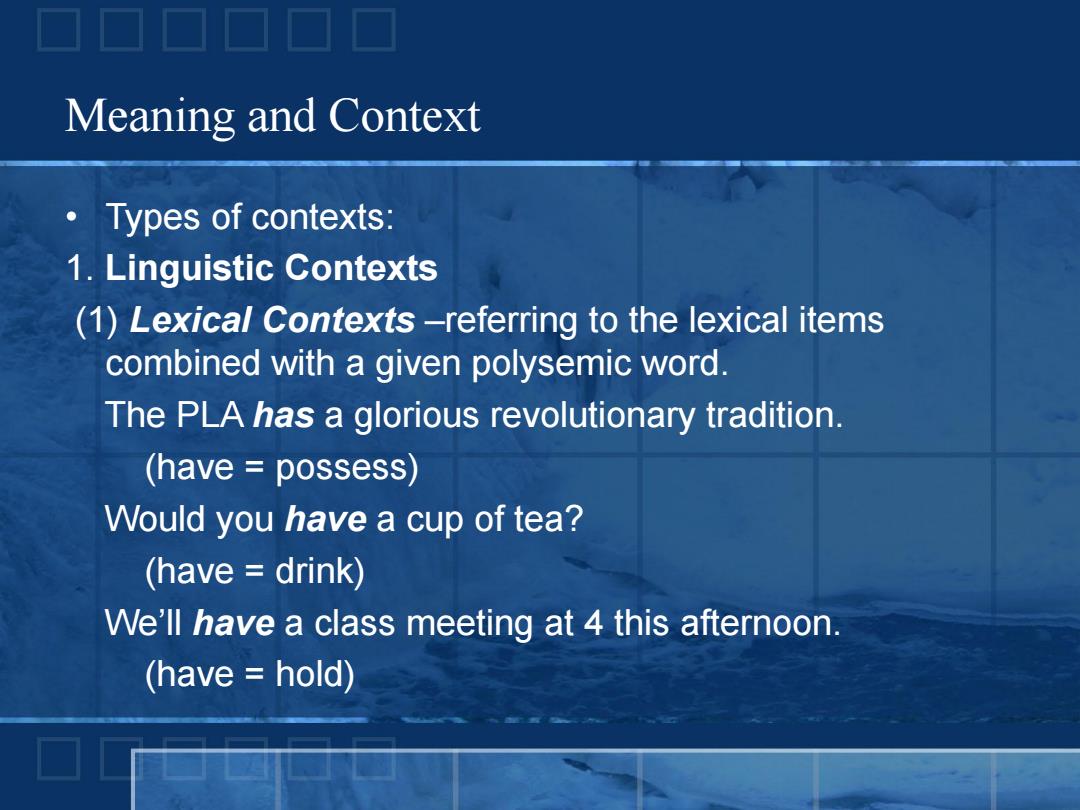
Meaning and Context ·Types of contexts: 1.Linguistic Contexts (1)Lexical Contexts-referring to the lexical items combined with a given polysemic word. The PLA has a glorious revolutionary tradition. (have possess) Would you have a cup of tea? (have drink) We'll have a class meeting at 4 this afternoon. (have hold)
Meaning and Context • Types of contexts: 1. Linguistic Contexts (1) Lexical Contexts –referring to the lexical items combined with a given polysemic word. The PLA has a glorious revolutionary tradition. (have = possess) Would you have a cup of tea? (have = drink) We’ll have a class meeting at 4 this afternoon. (have = hold)
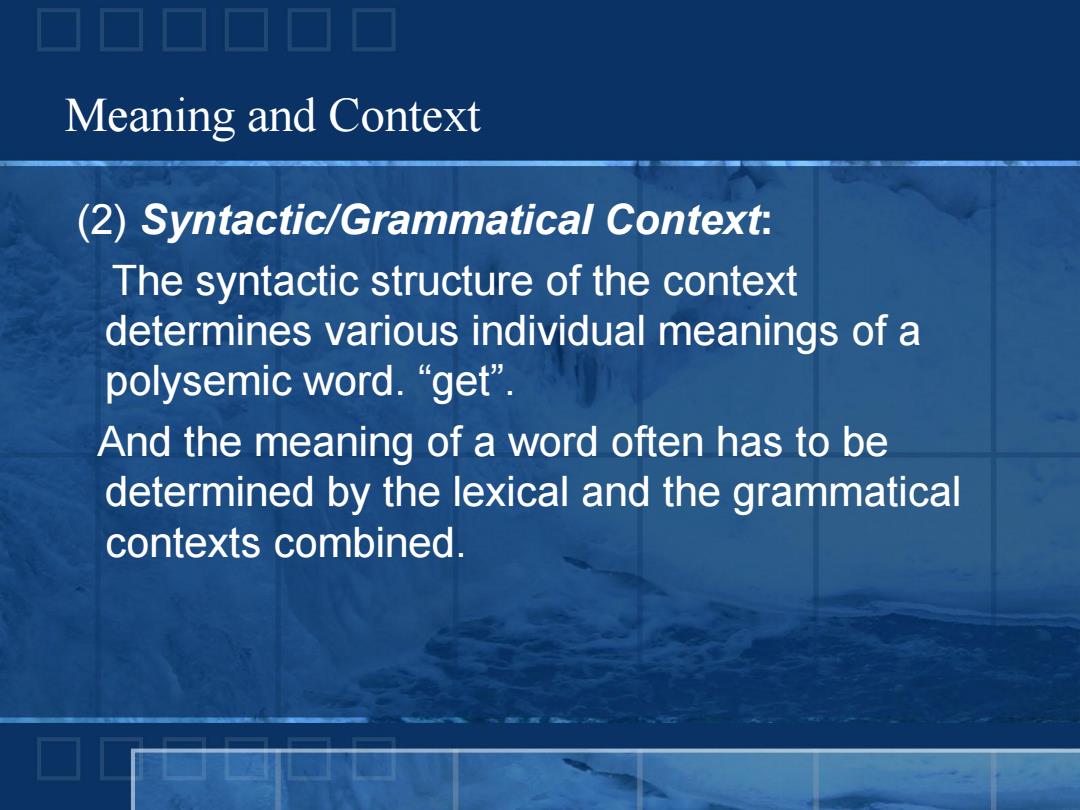
Meaning and Context (2)Syntactic/Grammatical Context: The syntactic structure of the context determines various individual meanings of a polysemic word..“get”. And the meaning of a word often has to be determined by the lexical and the grammatical contexts combined
(2) Syntactic/Grammatical Context: The syntactic structure of the context determines various individual meanings of a polysemic word. “get”. And the meaning of a word often has to be determined by the lexical and the grammatical contexts combined. Meaning and Context
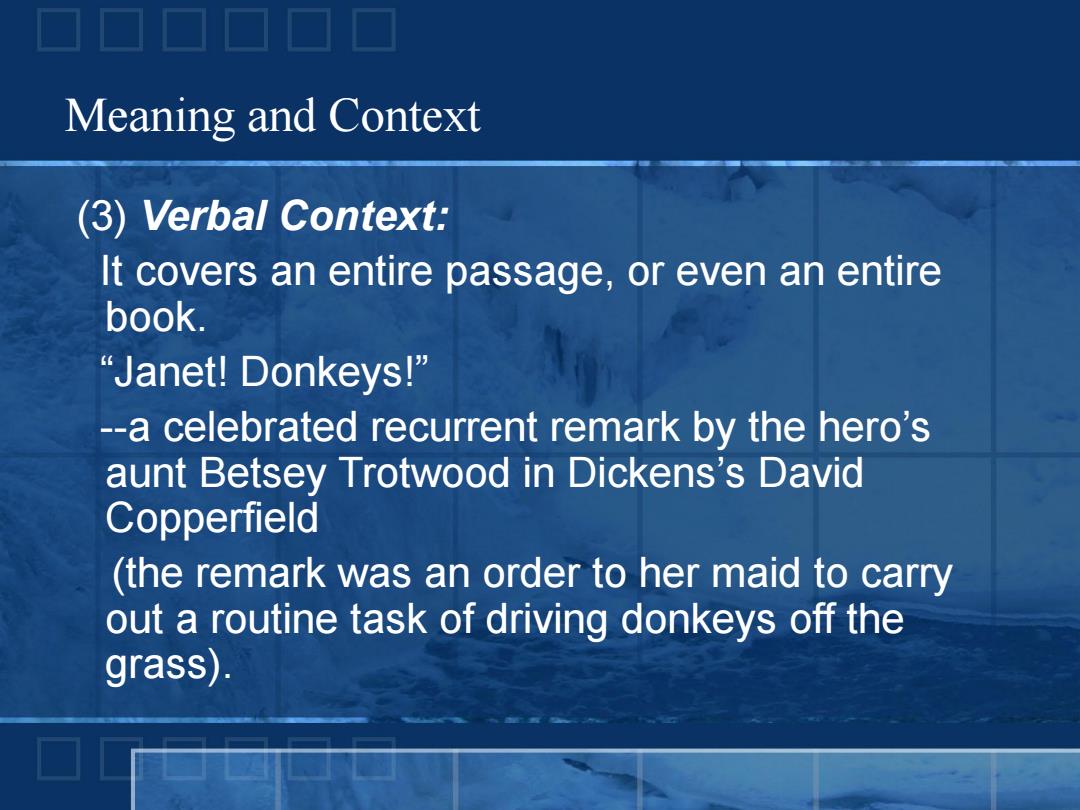
Meaning and Context (③)Verbal Context: It covers an entire passage,or even an entire book. “Janet!Donkeys!" --a celebrated recurrent remark by the hero's aunt Betsey Trotwood in Dickens's David Copperfield (the remark was an order to her maid to carry out a routine task of driving donkeys off the grass)
(3) Verbal Context: It covers an entire passage, or even an entire book. “Janet! Donkeys!” --a celebrated recurrent remark by the hero’s aunt Betsey Trotwood in Dickens’s David Copperfield (the remark was an order to her maid to carry out a routine task of driving donkeys off the grass). Meaning and Context